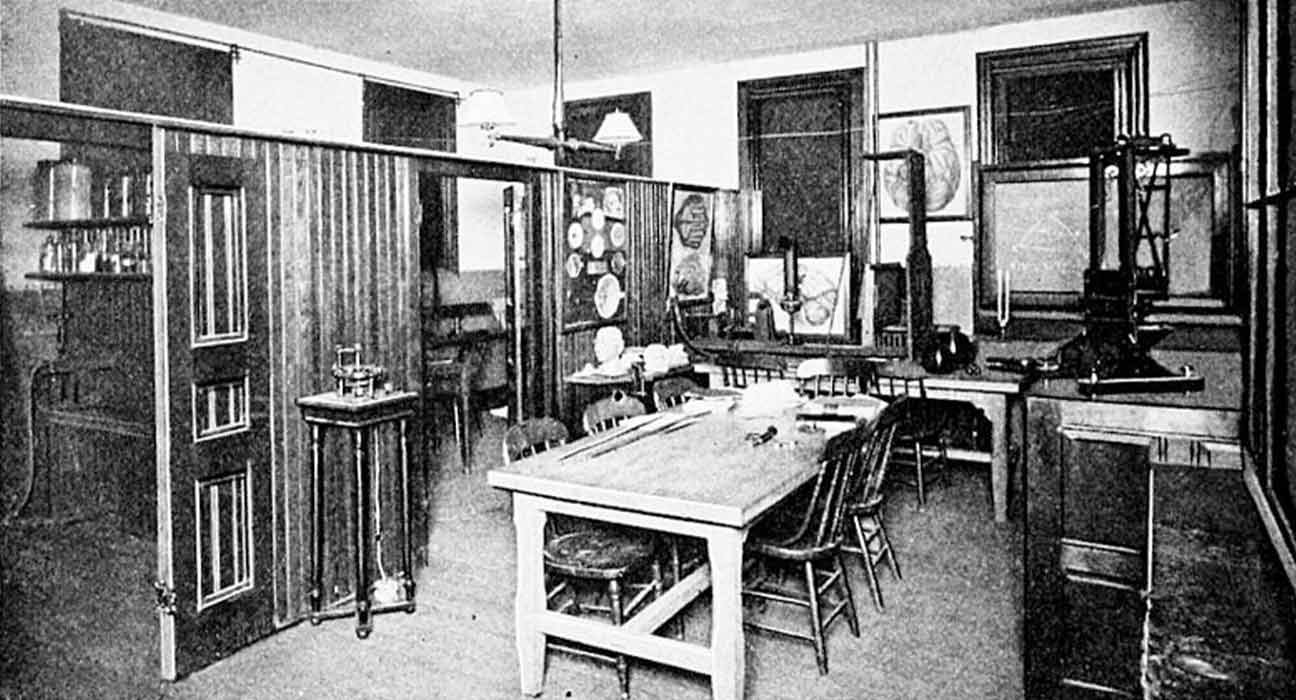As we all are aware, the study of the human mind and behavior is as old as time and has witnessed several phases and transitions in its journey to what it is today. However, it is mostly considered a young scientific discipline. This also officially marked the establishment of psychology as a separate discipline. But when was the first experimental psychology lab created and who was responsible for the creation? This question, which apparently should have had one solid answer, has more than one accurate response. This response, moreover depends upon the utility of the lab being specified.
Read More: A Beginner’s Guide to Psychology
The Conventional Answer:
Wilhelm Maximilian Wundt, popularly known as the “Father of Psychology”, is conventionally given the credit for creating the first psychology lab in the world. They developed the lab in 1879 at the University of Leipzig, in Germany. He created an academic laboratory on psychology and devoted it to the study of experimental psychology. To look at a bit of the history of the lab, Wundt attempted to teach experimental psychology at the University of Leipzig in 1875. However, he was not able to accommodate the apparatus and did not receive the space he intended to build his lab on the campus.
Read More: Wilhelm Wundt: The Father Of Psychology
As a result, he taught anthropology, logic, and language instead. But within a few years, he was assigned the space he required. The following year, he began teaching experimental psychology. By 1879, his laboratory was fully operational, and he was supervising the research of several students. Wundt named his laboratory the Institute for Experimental Psychology (1879) and this became the first experimental laboratory for psychology.
Read More: Experimental Psychology: Know About Its History, Features and Method
The University of Leipzig’s administration initially did not support Wundt’s institute; however, it grew in popularity, and Wundt’s lectures were widely attended. Wundt’s institute expanded multiple times due to its growing popularity. In 1882, he relocated from his tiny one-room. In 1897, an opportunity was offered to him to construct a complete structure after transforming his laboratory into one with nine rooms. Wundt’s dominance of experimental psychology lasted three decades. Wundt supervised 186 doctoral dissertations at Leipzig, including 70 in philosophy and 116 in psychology. Most of his students later turned out to be some of the best-known pioneers of the discipline in the world (Edward Titchener, James McKeen Cattell, Charles Spearman etc.)
He pioneered and further developed his major method of psychological analysis, experimental introspection, within the premises of this lab. Experimental introspection entails teaching individuals how to closely and impartially examine the ideas that they have for themselves. They investigate, document, and describe their internal mental processes and experiences as part of this data-collection strategy. It was for this significant contribution that he made to the field of psychology; Wilhelm Wundt was fondly titled the Father of Psychology.
Read More: Life of a Psychologist: Career, Challenges and Responsibility
Stanley Hall’s Lab
Parallel to the efforts of Wundt in creating a scientific lab for experimental psychology, Stanley Hall, one of Wundt’s students, developed an experimental psychology lab in the United States. His lab at John Hopkins University introduced and popularized the field of experimental psychology in the nation and became formally the first experimental psychologist in the United States in 1883.
William James Lab
Surprisingly, neither Wundt nor Hall can claim ownership of the World’s first psychology lab or even the first American psychology lab. William James, the pioneer of Functionalism, played a historic role in developing the world’s first psychology lab. This lab was the result of his efforts in pioneering and propagating Functionalism, a rival school to voluntarism or structuralism introduced by Wundt. Williams James created a psychology lab at Harvard University in 1875, four years before Wundt and eight years before Hall did. Unfortunately, he was never given the credit of being the pioneer of the first lab of psychology in the world.
Read More: 15 Women psychologists Who made their contribution to the field
Historians who intricately studied psychological history cite a reason for this. The lab created by William James was used for delivering lectures, exhibiting demonstrations, and other academic purposes. However, it was not exclusively or predominantly utilized for experimentation or authentic research purposes. This stole the credit that should have been duly given to William James for being the father of the first psychology lab in the World.
Read More: 5 Most Famous Psychologists
History cannot diminish Wundt’s importance. His laboratory was responsible for the majority of nineteenth-century experimental psychology studies. His students founded many of the world’s laboratories. Wundt’s students founded 14 out of the 47 labs that existed earlier in the world, James’ students founded three, and Hall’s students founded five. In I894, Wundt’s “Institut” was the world’s largest and most advanced laboratory for experimental psychology.
By applying a scientific approach to the study of the human mind and behavior, Wundt’s lab played a crucial role. This contribution formally established psychology as a discipline separate from philosophy and biology. Wundt’s lab was also used to teach other psychologists who later helped disseminate psychology over the world. History should not disregard James’ laboratory and pioneering initiative. The history of experimental psychology should acknowledge James’ unique philosophy and writing, as well as the fact that his lab was the first in America. Other labs quickly appeared outside of Germany and the United States, including psych labs in Russia, China, France, and Canada.
References +
https://practicalpie.com/g-stanley-hall/
https://www.verywellmind.com/who-founded-the-first-psychology-lab-2795250
https://www.jstor.org/stable/227184?seq=4
An Introduction to the History of Psychology- BR Hergenhahn













Leave feedback about this